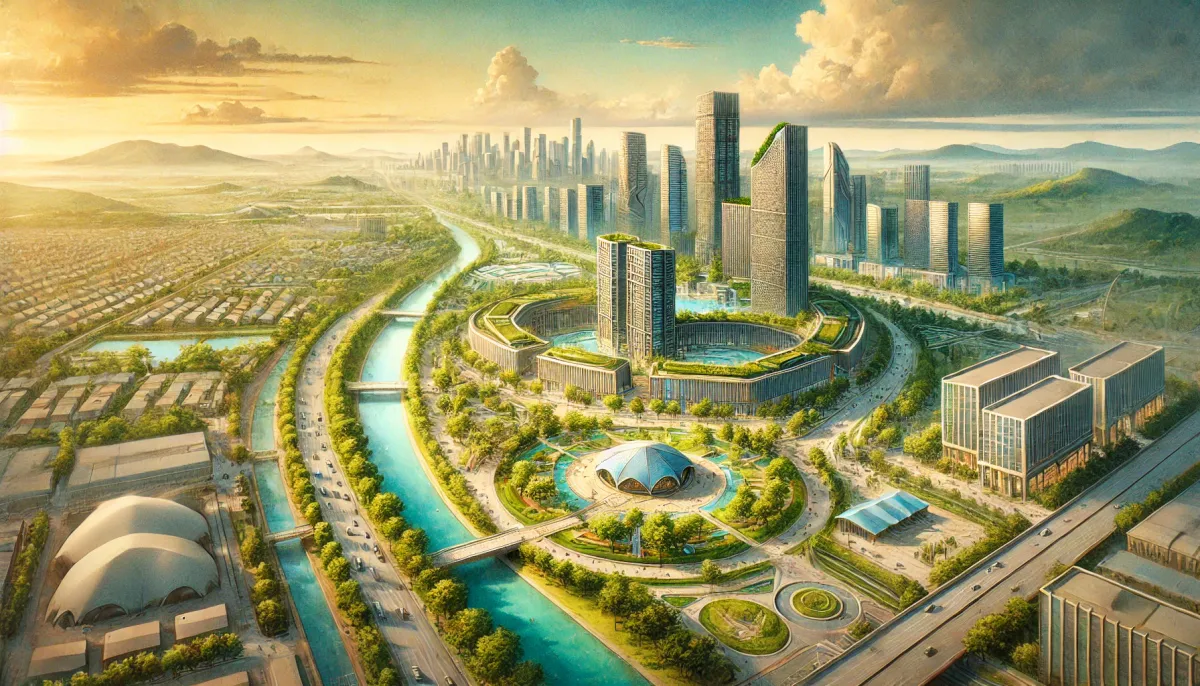Nusantara (Capital District), Indonesia

Nusantara, Indonesia's forthcoming capital city, is under development in East Kalimantan on the island of Borneo, aiming to replace Jakarta as the nation's administrative center. Initiated in 2019 under President Joko Widodo, the relocation addresses Jakarta's challenges, including severe congestion, pollution, and land subsidence. Nusantara is envisioned as a smart and green city, promoting sustainable urban development with plans to utilize renewable energy and integrate extensive green spaces. The project, estimated to cost around $33 billion, has faced delays and funding hurdles, leading to an indefinite postponement of its formal inauguration. Despite these challenges, the Indonesian government remains committed to progressing with key infrastructure, aiming for significant completion in the coming years.
Nusantara is a new city, not just a district. It is being developed as the new capital of Indonesia, planned to replace Jakarta, which faces challenges like overcrowding, traffic congestion, and environmental issues. Announced in 2022, Nusantara will be located in East Kalimantan on the island of Borneo. The city is designed to be a sustainable, smart city with modern infrastructure, green spaces, and eco-friendly technologies, and will include government buildings, residential areas, and business districts.
Unlike a district, which is an expansion of an existing city, Nusantara is being built from scratch to serve as Indonesia's political, economic, and administrative center. Once completed, it will operate as a self-sustaining new capital city.
Nusantara is a conceptual project than a city at this stage. Its current state leans more toward being a “ghost city” rather than a moderate success. While some groundwork has been laid, actual construction is still limited, and the city has yet to attract residents, businesses, or economic activity in any significant numbers. Until major relocation efforts, infrastructure completion, and population growth occur, Nusantara will remain closer to a “ghost city” in terms of real-world outcomes. While it has strong political backing and ambitious plans, its slow pace, funding issues, and lack of real population growth keep it firmly in slow momentum territory.
Strengths:
- Significant National Backing: Nusantara, set to become Indonesia’s new capital, has full support from the Indonesian government, with high-profile plans for relocation and infrastructure development.
- Strategic Environmental and Decentralization Goals: Designed to reduce congestion and environmental pressures on Jakarta, Nusantara aims to integrate green infrastructure and spread development more evenly across the country.
- Well-Defined Urban Vision: Early planning focuses on sustainability, smart city features, and cultural integration, establishing a framework for a modern capital.
Challenges:
- Limited Construction Progress: Despite being officially announced in 2019, actual development has moved slowly. Much of the city remains in early planning or partially built phases.
- Financial and Logistical Hurdles: Funding delays, global economic uncertainties, and difficulties acquiring land have impeded large-scale development.
- Uncertain Population and Business Attraction: Without substantial residential migration or major economic anchors, Nusantara risks becoming another underpopulated, government-driven project.
- Environmental and Social Concerns: The city’s location in East Kalimantan raises issues of deforestation, indigenous land rights, and ecological impacts, creating additional barriers to success.
| Year | Population Estimate |
|---|---|
| 2024 | Initial Inauguration |
| 2029 | ~1,200,000 |
| 2045 | ~1,900,000 |




